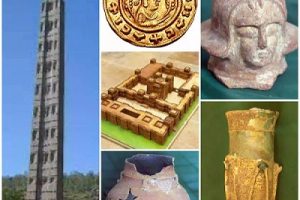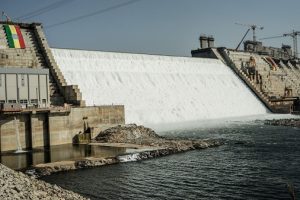
In today’s interconnected world, media stands as an undeniable force in shaping a nation’s global standing. Media, harnessing this power effectively is not just an option but a strategic imperative for strengthening its digital and public diplomacy. However, like any powerful tool, media comes with inherent risks that demand careful understanding and proactive management.
In this time, world leaders, diplomats, and governments utilize social media as a tool to engage with global audiences, share perspectives, and conduct public diplomacy. This direct engagement fosters a sense of connection and accountability between governments and their citizens including global audience.
In recent reports, it is indicated that social media platforms have become important tools for public diplomacy with more than 200 Ministry of Foreign Affairs and foreign ministers active on Twitter. The targets of public diplomacy have also undergone some fundamental changes. The target of influence and manipulation is no longer the foreign audience alone but now includes the domestic public as well.
Beyond crisis communication, media plays a crucial role in cultivating a positive image for Ethiopia on the international stage. By strategically promoting its rich culture, vibrant history, burgeoning economic potential, and breathtaking tourism attractions, nations can capture the imagination of global audiences.
Furthermore, the experiences of the developing countries indicate that digital diplomacy is not limited to the diplomat. Because of advancing technology, it is possible for non-diplomats and other stockholders to participate in diplomatic decisions.
This indicated that digitization greatly affects diplomat’s daily activities. The number of domestic and international bodies whose activity links to diplomacy is growing. The public is more sensitive to foreign policy issues and seeks to influence diplomacy through social media platforms. The way interexchange between states and domestic actors.
An exclusive interview with The Ethiopian Herald, experts highlighted Ethiopia’s need to effectively use public and digital diplomacy on social media for national interests, ensuring responsible information dissemination and robust global engagement. However, urgent social media management challenges persist, including fake news, disinformation, cyber attacks, and the critical need for well-trained personnel.
Researcher, Lecture of Media and Communication at Jimma University, Getachew Tilahun (Ph.D.) stated that media can significantly enhance citizens’ understanding of international issues and encourage their active participation in dialogue.
This, in turn, helps to cultivate a robust public base supportive of diplomatic endeavors. When citizens are informed and engaged, they become advocates for their country’s foreign policy goals, he said.
He also underscored the media’s critical role in agenda-setting, noting that Ethiopian politicians are increasingly adept at utilizing this function. While it’s beneficial for the media to frame political agendas, he expressed concern about the Ethiopian media’s perceived weakness in independently setting agendas on various crucial national issues.
He emphasized a need for greater journalistic autonomy and initiative in identifying and bringing important national exchanges to the forefront.
The digital era demands that Ethiopia’s embassies around the world fully embrace media technology to safeguard national interests and strengthen international ties. In his part, Journalist Tibebu Belete, Manager of Ahadu Radio and Television, praised the swift and frequent updates information on the Ethiopian Ministry of Foreign Affairs’ websites.
Particularly, he cited the Ethiopian Embassy in London as a prime example of posts new information daily. This proactive approach underscores the vital importance of digital diplomacy and the rapid exchange of information in line with contemporary demands, he said, such efforts are instrumental in protecting and promoting Ethiopia’s interests and sovereignty, thereby bolstering its diplomatic development.
However, Tibebu also highlighted a concerning disparity, observing that some embassies remain desolately unaware of the power of media diplomacy. These inconsistencies echoed by Getachew, who noted that many embassies struggle with timely information dissemination on their own websites, points to a significant gap in leveraging digital tools for diplomatic advantage.
He noted that effective communication via media allows Ethiopia to readily introduce its foreign policy to other nations and, conversely, learn about theirs. This reciprocal exchange not only strengthens bilateral diplomacy but also paves the way for collaborative development projects.
It is not only for diplomacy aspects its crucial instrument in safeguarding national sovereignty and fostering sustainable development. Far from being mere conduits of information, media outlets across the country are actively engaged in shaping the narrative, promoting national unity, and countering destabilizing influences.
By disseminating accurate and timely information, the media helps to secure the nation’s interests against misinformation and external pressures that could undermine its autonomy. It plays a vital role in educating citizens about their rights and responsibilities, fostering a sense of shared national identity, and mobilizing public support for policies that strengthen Ethiopia’s position on the global stage.
Furthermore, the media acts as a powerful catalyst for sustainable development. It shines a light on the challenges hindering progress, such as poverty, illiteracy, and health disparities, while simultaneously highlighting successful initiatives and innovative solutions.
Through amplifying diverse voices and perspectives from every corner of the country, the media fosters inclusive dialogue, which is crucial for identifying and addressing the multifaceted aspects of development.
While the benefits are clear, the open and often uncontrolled nature of social media presents significant challenges. Tibebu warned that this openness makes it fertile ground for the rapid spread of false information and fake news, which can quickly highlight domestic problems or negative events, severely tarnishing a country’s image. Even with the importance of transparency, biased reporting can inflict serious damage on a nation’s reputation, erode trust, and consequently impede diplomatic efforts.
Furthermore, he noted the insidious risk of some countries using media to interfere in the internal affairs of others or to aggressively pursue their own interests, posing a direct threat to national sovereignty.
Getachew added that much of the Ethiopian media landscape has yet to effectively target foreign audiences, particularly concerning multi-language outreach.
He stressed the need for Ethiopian media to disseminate accurate information in African languages like Swahili and other relevant tongues, aligning with Ethiopia’s interests in strengthening diplomacy with neighboring and other African countries.
He emphasized the crucial need for both government and private media to collaborate for the national interest, advocating for a united front against deliberate propaganda spread about Ethiopia by foreign entities, countered by the provision of accurate information.
In this regard, the media has a crucial role to play in encouraging best practices and guiding other embassies in understanding and implementing the manifold benefits of digital diplomacy.
BY FIKADU BELAY
THE ETHIOPIAN HERALD THURSDAY 3 JULY 2025





